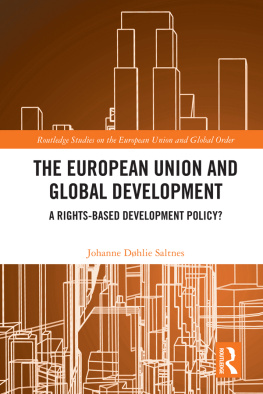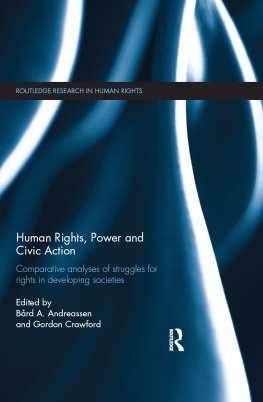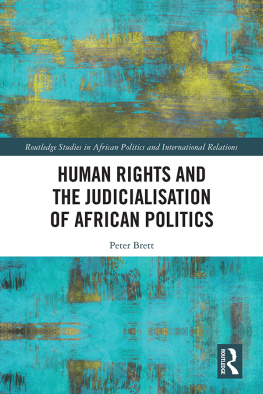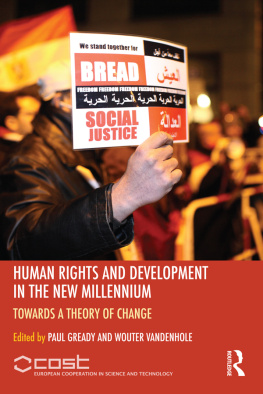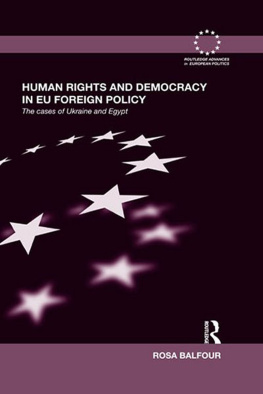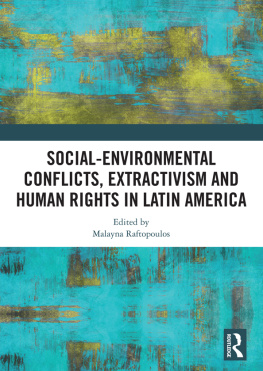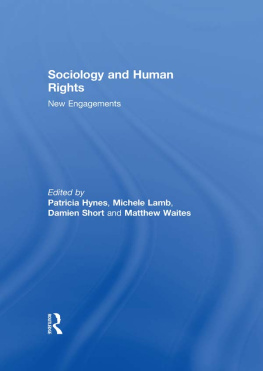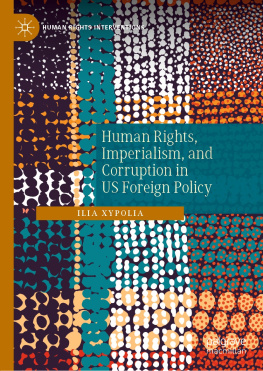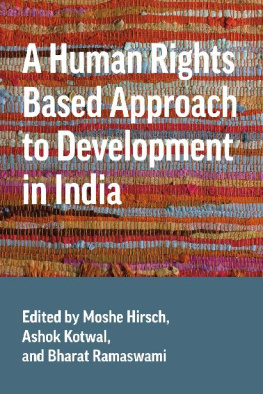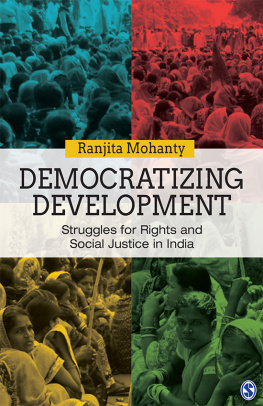The European Union and Global Development
This book systematically analyses the EUs commitment to a human rights-based approach to development through the lens of global justice theory.
It identifies limits to the EUs approach and discusses how standardised policies, particularly in the case of human rights sanctions, may be perceived as neo-colonially intrusive and can come at the cost of recognising the experiences and interests of vulnerable groups and allowing for partner countries democratic ownership of their own development trajectory. Engaging with primary sources including official documents, reports, and 45 semi-structured interviews with EU and member state officials, the book also presents a novel explanation for why the EU, at times, steps out of its commitment to rights-based development and chooses differentiated foreign policy responses to similar situations.
This book will be of key interest to scholars and students of EU foreign policy, EU development policy, human rights and international relations, as well as policy practitioners working in the fields of development, human rights and democracy promotion.
Johanne Dhlie Saltnes is post-doctoral researcher at ARENA Centre for European Studies, University of Oslo, Norway.
Routledge Studies on the European Union and Global Order
Some critical voices notwithstanding, the scholarly debate on the EUs foreign policy role and its contribution to global values has rested on the assumption of the viability of a liberal world order with the EU at its vanguard. This Series revisits this assumption.
The series analyses the external policies and the response from external actors of the European Union (EU) at a time of enhanced uncertainty, risk and ambiguity. Drawing on a threefold conception of global political justice, it offers an innovative account of the EUs global role and relevance at a time of profound contestation over global norms. It delivers in-depth analyses of a set of core issues of global governance in which the EU has played a major role, amongst them migration, climate change, security and conflict, and development. Through these analyses, the Series re-conceptualises the EUs global role, and brings forth a new perspective on the crisis of the liberal world order; on what is at stake and for whom.
Series editor: Helene Sjursen, ARENA Centre for European Studies, University of Oslo, Norway.
The EU and Global Climate Justice
Normative Power Caught in Normative Battles
Franziskus von Lucke, Thomas Diez, Solveig Aamodt and Bettina Ahrens
Migration and the Contested Politics of Justice
Europe and the Global Dimension
Edited by Giorgio Grappi
Conflict Resolution and Global Justice
The European Union in the Global Context
Edited by Nikola Tomi and Ben Tonra
The European Union and Global Development
A Rights-based Development Policy?
Johanne Dhlie Saltnes
The European Union and Global Development
A Rights-based Development Policy?
Johanne Dhlie Saltnes
First published 2022
by Routledge
2 Park Square, Milton Park, Abingdon, Oxon OX14 4RN
and by Routledge
605 Third Avenue, New York, NY 10158
Routledge is an imprint of the Taylor & Francis Group, an informa business
2022 Johanne Dhlie Saltnes
The right of Johanne Dhlie Saltnes to be identified as author of this work has been asserted by him in accordance with sections 77 and 78 of the Copyright, Designs and Patents Act 1988.
All rights reserved. No part of this book may be reprinted or reproduced or utilised in any form or by any electronic, mechanical, or other means, now known or hereafter invented, including photocopying and recording, or in any information storage or retrieval system, without permission in writing from the publishers.
Trademark notice: Product or corporate names may be trademarks or registered trademarks, and are used only for identification and explanation without intent to infringe.
British Library Cataloguing-in-Publication Data
A catalogue record for this book is available from the British Library
Library of Congress Cataloging-in-Publication Data
Names: Saltnes, Johanne Dhlie, author.
Title: The European Union and global development: a rights-based
development policy? / Johanne Dhlie Saltnes.
Description: Abingdon, Oxon; New York, NY: Routledge, 2022. |
Series: Routledge studies on the European Union and global order |
Includes bibliographical references and index.
Identifiers: LCCN 2021008987 (print) | LCCN 2021008988 (ebook) |
ISBN 9780367468514 (hardback) | ISBN 9781032059730 (paperback) |
ISBN 9781003036531 (ebook)
Subjects: LCSH: Human rightsGovernment policyEuropean Union countries. |
Human rights advocacyEuropean Union countries. |
DemocratizationGovernment policyEuropean Union countries. |
European Union countriesForeign relations.
Classification: LCC JC599.E94 E87 2022 (print) |
LCC JC599.E94 (ebook) | DDC 341.4/8094dc23
LC record available at https://lccn.loc.gov/2021008987
LC ebook record available at https://lccn.loc.gov/2021008988
ISBN: 978-0-367-46851-4 (hbk)
ISBN: 978-1-032-05973-0 (pbk)
ISBN: 978-1-003-03653-1 (ebk)
Typeset in Times New Roman
by Newgen Publishing UK
Contents
This book is the product of many years research on the EUs development policy conducted in the context of the H2020 research project GLOBUS Reconsidering European Contributions to Global Justice (agreement no. 693609) and my Ph.D. dissertation which I completed at ARENA Centre for European Studies, University of Oslo in 2019. Since the very start of my academic career I have been fascinated by the role of human rights norms in development policies. Many scholars assume that references to human rights norms are mere cheap talk and that the driving force behind development efforts are first and foremost related to national interests, those being connected to economic or security concerns or the concern for gaining domestic voters support. This book revisits this argument. To do so, I engage with a novel and critical theoretical framework, grounded in global political justice theory, that helps me conduct a reconsideration of the EUs rights-based approach and also allows me to look beyond the question of whether the EU is acting (in)consistently. My findings are both novel and critical: On the one hand I find that human rights norms form part and parcel of the EUs development policy and continue to guide the EUs ambitions post 2020, contrary to contemporary assumptions of the EU resorting to a more geo-strategic approach. On the other, I also discover that the Unions approach suffers from weaknesses. The EU engages in a form of political association that denies its partners political autonomy and participation. In sum, the aim of this book is to open a new and more meaningful conversation about the role of human rights norms in development partnerships and the strengths and weaknesses of the EUs commitment to wield a rights-based development policy.
In putting together this book I have benefited from cooperation and input from many scholars and colleagues over the past years. The GLOBUS team has provided me with invaluable feedback and encouragement, without which this book would never be possible to write. First, thanks to my Ph.D. supervisor and Globus co-ordinator Helene Sjursen who has encouraged and pushed me to be a better scholar from the very start of my academic career. I have benefited greatly from her advice and comments made on the material presented in this book. Second, I would like to thank the GLOBUS team of researchers, which have in addition to being wonderful colleagues, helped me refine my arguments and provided valuable comments and suggestions on earlier drafts of this book: Ben Tonra, Bettina Ahrens, Cathrine Holst, Erik Oddvar Eriksen, Enrico Fassi, Franz von Lucke, Kholiswa Malindini, Kjartan Koch Mikalsen, Michela Cecorulli, Nicola Tomic, Odile Mackett, Pundy Pillay, Sam Brazys, Solveig Aamodt, Sonia Lucarelli and Thomas Diez.

